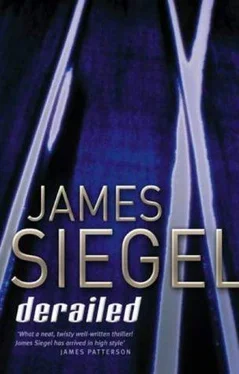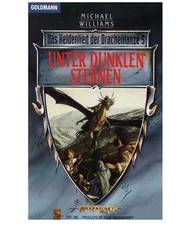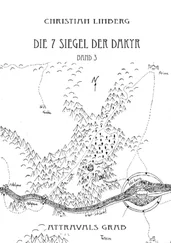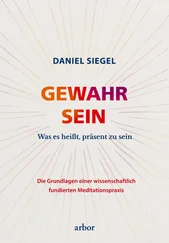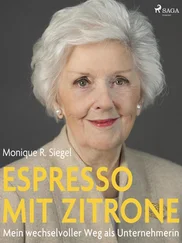“I meant what I said. About talking to me. Okay?”
“Sure.”
“Be home normal time?”
“Yes. Normal time.”
“See you then.”
When I hung up the phone, I thought it might actually be possible to make everything turn out okay. Not everything, but the important things. I knew what the important things were, too — they were staring at me from the ten-by-twelve picture frame on my desk.
But that’s when everything began to go wrong.
TWENTY-SEVEN
The phone call came maybe two minutes later.
Two minutes after I’d hung up with Deanna, after I’d stared at the picture of my family and thought that maybe I could make it all work out in the end.
The phone rang. And rang again. Darlene was probably down the hall swapping boy stories with her fellow executive assistants — which is what secretaries liked being called now in lieu of decent salaries.
So I picked it up.
There were over one hundred people who could have logically been on the line—much later, I counted them as an excuse for something to do. Everyone I knew, basically—maybe a hundred people, all in all, who could reasonably be expected to pick up a phone and call me. Not that I wasn’t expecting this call, of course. In many ways, it was the only call I was expecting. But I imagined it very differently. I imagined it was going to be Vasquez on the line.
But it wasn’t Vasquez.
It was her.
Only her voice was strangely reminiscent of another time, another place. That little-girl voice again. Terribly cute when it’s coming from a little girl, but nauseating when it’s not.
“Please, Charles," the voice pleaded. "You have to come here. Now.”
I was thinking several things at once. For instance, where here was. Her home, her office? Where? For another, I was wondering what it was that was causing her to sound like a frightened child again. Even though I knew what it was. I knew.
“You have to . . . Oh God . . . please, ” she whispered.
“Where are you?” I asked her. A good logical question, one of the four Ws they teach in journalism. What, When, Why, Where? Even if I was asking it in a voice that sounded as panicked as hers. Even then.
“ Please . . . he followed me . . . he’s going to . . .”
“What’s going on, Lucinda? What’s wrong?” Which, after all, was the real question here.
“He’s going to hurt me, Charles. . . . He . . . he wants his money . . . he . . .” And then her words got muffled and I could picture what was happening. I saw the phone being yanked out of Lucinda’s hand, the receiver covered by a large black fist. I pictured the room, which looked like the room in Alphabet City even if it wasn’t. And I imagined her face — even as I tried to avert my eyes, I did. Don’t look . . . don’t . . .
And then someone was speaking again. But not her. Not this time.
“Listen to me, motherfucker. ” Vasquez. But not the one I was used to. That phony ingratiating tone was gone, the carefully controlled fury. Fury had been let out for a stroll, and it was kicking up its heels and break-dancing on whoever got in its way.
“You thought you could fuck with me. You thought you’re gonna set me up? You miserable piece of shit. Me? You put some pansy in a car, and he’s gonna what? Kick my ass? You fucking crazy? I got your girl here, understand? I got your whore right here. Tell me you understand, motherfucker.”
“I understand.”
“You understand shit. You think you’re some kind of gangsta or something? You send some clown to fuck me over? Me? ”
“Look . . . I understand. I — ”
“You understand? You get your ass over here with the hundred grand or I will fucking kill this stupid whore. You understand that, Charles?”
“Yes.” After all, who couldn’t understand that? Was there anyone on earth who couldn’t grasp the gravity of that statement?
Now we were down to Where again. I asked for an address.
This time it was uptown — Spanish Harlem. A place I’d never been to except in passing while on my way to somewhere else — Yankee Stadium or the Cross Bronx Expressway.
I called Vital for a car. I opened my locked drawer and stuffed the money into my briefcase—I had it sitting there, waiting for the moment to arrive. I saw something else sitting there, too: Winston’s gun. For a second I thought about taking it with me, but then I decided against it. What, after all, would I do with it?
On the way downstairs I passed Mary Widger, who asked me if anything was wrong.
Family emergency, I explained.
In fifteen minutes I was traveling up Third Avenue. The car slithered, it squeezed, it maneuvered its way excruciatingly through an obstacle course of stationary refrigeration trucks, FedEx vehicles, moving vans, commuter buses, taxis, and gypsy cabs.
But maybe we weren’t moving as slowly as I thought — maybe I was simply picturing what Vasquez was going to do to Lucinda and thinking that I couldn’t let it happen again, not twice in one lifetime. It seemed that I’d look up at a street sign — 64th Street, for instance — and five minutes later I’d still be looking at the same sign.
Halfway through the ride, I realized the hand that was holding my briefcase had gone numb. I was gripping the handle so tightly, my knuckles had taken on the color of burnt wood — ash white. And I remembered a game Anna used to play with me, a kind of parlor trick — asking me to hold her forefinger in my fist and squeeze for five minutes, not a second less, and then release, always giggling as I tried to open my now paralyzed fingers. That was the way I felt now — not just my hands, but all of me: paralyzed. The way I’d felt back in that chair in the Fairfax Hotel. The woman I’d fallen in love with being raped not five feet from me, and I like a victim of sleeping sickness, able to perform all the functions of life save one. To act.
Eventually, the tonier sections of the East Side fell away. Boutiques, handbag stores, and food emporiums turned into thrift shops and bodegas as more and more Spanish words began showing up on passing storefronts.
The apartment building was on 121st Street between First and Second Avenues.
It was surrounded by a check-cashing place, a hairdresser, a corner bodega, and two burned-out buildings. A man selling roasted chestnuts and what looked like unpeeled ears of corn had set up shop in the middle of the block. Another man who looked suspiciously like a drug dealer was checking his beeper and talking into a fancy-looking cellular phone in front of the building.
I asked the car to wait for me. The driver didn’t seem very happy with the idea, but he had the kind of job where you couldn’t exactly say no.
“I may have to circle,” he said.
I didn’t answer him — I was staring at the building and wondering if I could make it through the door. There were three men loitering in the entranceway, and none of the three looked like anyone you’d ask for directions. They looked like three-fifths of a police lineup, men you don’t put your hand out to unless it contains your wallet.
And I was carrying more than my wallet today; I was carrying my wallet plus one hundred thousand dollars.
As soon as I eased myself out of the car, I heard the click of the door locks. You're on your own, they said. And I was; and on 121st Street between First and Second Avenues, I was pretty much the center of attention, too. I imagined that Lincoln Town Cars made very few stops here, as did well-dressed white men carrying expensive leather briefcases. The chestnut seller, the drug dealer, the three men guarding the entranceway of building number 435, all were looking at me like a hostile audience demanding something entertaining.
Читать дальше
